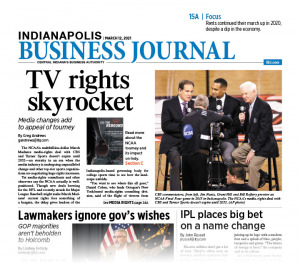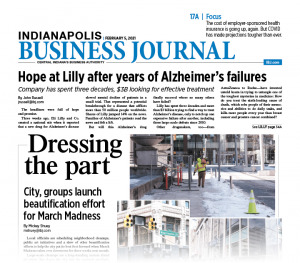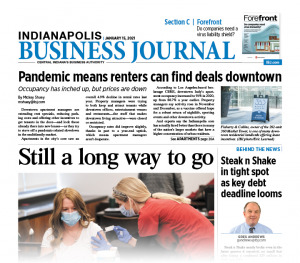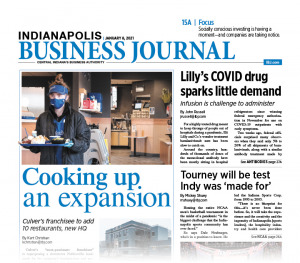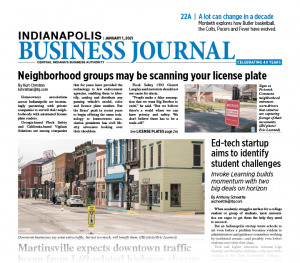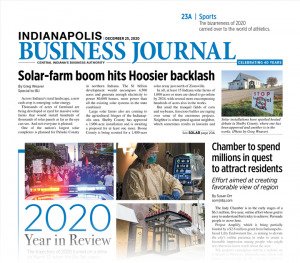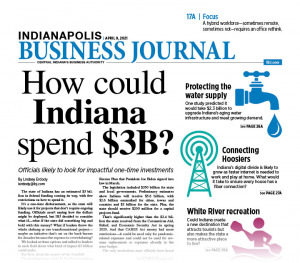
APRIL 9-15, 2021
The state of Indiana has an estimated $3 billion in federal funding coming its way, with few restrictions on how to spend it. IBJ’s Lindsey Erdody took a look at three of the state’s longtime—but neglected—priorities to gauge the impact of a $3 billion windfall. Also in this week’s issue, Susan Orr explores how adult entertainers in Indiana are trying to get to the bottom of a legal question that affects many Hoosiers: When is an independent contractor really an employee, covered by minimum wage and overtime laws. And Kurt Christian reports that the president of the Westfield City Council is now questioning whether to move forward with a $15 million project to widen State Road 32 that’s been in the works for more than a decade.




